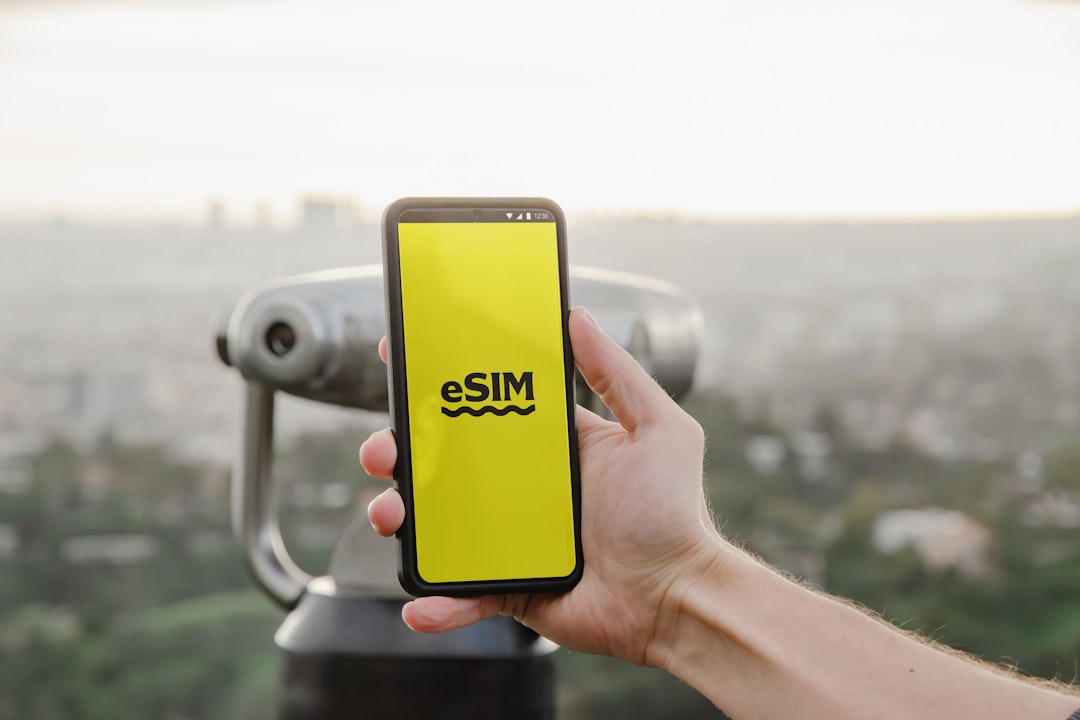Your Ultimate Guide to Spain’s Digital Nomad Visa

Introduction
Spain has become one of the most coveted destinations for remote workers seeking a blend of sunshine, culture, and modern infrastructure. The country’s new Digital Nomad Visa offers a legal pathway for freelancers, entrepreneurs, and employees of foreign companies to live and work from Spanish soil for up to two years. This guide walks you through everything you need to know – from eligibility and documentation to daily life in Spain – so you can make an informed decision and start your Spanish adventure with confidence.
Why Choose Spain as a Digital Nomad Hub
Lifestyle and Climate
Spain’s climate varies from the Mediterranean warmth of the Costa Brava to the mild Atlantic breezes of Galicia. Most of the country enjoys more than 300 days of sunshine a year, making it an ideal backdrop for outdoor activities, beach breaks, and café work sessions.
Infrastructure
High‑speed internet is widely available in major cities and many coastal towns. Co‑working spaces have proliferated in Barcelona, Madrid, Valencia, and even smaller locales such as Seville and Málaga. Public transportation is reliable, and the high‑speed AVE train network connects the country’s key regions in a matter of hours.
Culture and Community
From world‑class museums and historic architecture to tapas bars and flamenco shows, Spain offers a rich cultural tapestry. The expat and digital nomad communities are vibrant, with meet‑ups, language exchanges, and networking events happening regularly.
Strategic Location
Spain’s position at the crossroads of Europe, Africa, and the Americas makes it a convenient base for traveling across the continent or conducting business with clients in different time zones.
Overview of the Spain Digital Nomad Visa
The Spanish Digital Nomad Visa, officially called the “Residence Visa for Remote Workers,” was introduced in 2022 and became fully operational in early 2023. It is a non‑immigrant residence permit that allows non‑EU citizens to stay in Spain for up to two years while working remotely for a foreign employer or running an independent business that is not registered in Spain.
Key features:
- Duration – Initially granted for one year, renewable for a second year, for a total stay of up to two years.
- Work flexibility – You may be employed by a foreign company, run a freelance business, or own a startup that operates outside Spain.
- Family reunification – Spouses and dependent children can be included in the application.
- Path to longer residence – After five years of continuous legal residence, you may apply for long‑term residency.
Eligibility Criteria
Employment or Business Requirements
- You must have a remote work arrangement with a company or clients that are legally established outside Spain.
- If you are self‑employed, your business must be registered in a jurisdiction other than Spain and generate a stable income.
Income Threshold
- You need to demonstrate a minimum monthly income of €2,400 (the exact figure may be adjusted annually).
- If you have a family member accompanying you, the required income increases by 25 % for a spouse and 20 % for each dependent child.
Health Insurance
- Valid private health insurance covering the entire duration of your stay is mandatory. The policy must be recognized in Spain and provide comprehensive medical coverage.
Clean Criminal Record
- A recent (within the last three months) criminal background check from your country of residence is required.
No Prior Visa Violations
- You must not have overstayed a previous Schengen or Spanish visa.
Required Documents
Below is a checklist of the documents you will need to gather before submitting your application. All documents not originally in Spanish must be translated by an officially certified translator and, where required, legalized or apostilled.
- Completed visa application form (available on the Spanish consulate website).
- Valid passport (minimum six months validity beyond the intended stay).
- Recent passport‑size photograph (white background, 35 mm × 45 mm).
- Proof of remote employment or business activity:
- Employment contract or letter from your foreign employer stating remote work arrangement, salary, and duration.
- If freelance, a copy of your business registration, recent invoices, and bank statements showing income.
- Financial proof meeting the income threshold:
- Bank statements for the last three months.
- Tax returns or proof of income for the most recent fiscal year.
- Private health insurance policy documentation.
- Criminal background certificate from your country of residence (must be less than three months old).
- Proof of accommodation in Spain: rental contract, property deed, or a letter of invitation from a host.
- Travel itinerary (optional but helpful).
- For family members: marriage certificate, birth certificates of children, and proof of their financial dependence.
Step‑by‑Step Application Process
1. Prepare Your Documentation
Collect all required documents, obtain certified translations, and ensure any apostilles are in place. Double‑check that your income proof clearly meets or exceeds the minimum threshold.
2. Schedule an Appointment at the Spanish Consulate
Most consulates operate an online booking system. Choose the consulate that serves your jurisdiction and book a visa interview slot. Appointments can fill up quickly, so plan at least four to six weeks ahead of your intended travel date.
3. Attend the Visa Interview
During the interview you will submit your documents, provide biometric data (fingerprints), and answer questions about your remote work arrangement. Be prepared to explain how your job or business complies with the “non‑Spanish” requirement.
4. Pay the Visa Fee
The fee is typically €80 for the main applicant, with an additional €30 for each family member. Payments are usually accepted via bank transfer, credit card, or cash, depending on the consulate’s policy.
5. Wait for Processing
Standard processing time is between 30 and 45 days, though it can be longer during peak periods. You can track the status of your application through the consulate’s online portal if available.
6. Receive Your Visa
If approved, you will receive a residence visa sticker in your passport. This visa allows you to travel to Spain and apply for a residence card within the country.
7. Enter Spain and Register
Within 30 days of arrival, you must register at the local town hall (Ayuntamiento) and obtain a Foreigner Identity Number (NIE). You will also need to schedule an appointment at the police station to collect your residence card (Tarjeta de Identidad de Extranjero – TIE).
8. Renew or Extend
Before the first year expires, you can apply for a renewal to obtain the second year of stay. The renewal process mirrors the initial application but can be completed within Spain at the local immigration office.
Fees, Timelines, and Practical Considerations
- Visa fee – €80 for the principal applicant, €30 per dependent.
- Residence card issuance – Approximately €20–€30.
- Translation and apostille costs – Vary by country; budget €100–€200.
- Health insurance premium – Depends on coverage; expect €50–€150 per month for a single adult.
Processing times can fluctuate based on consular workload, completeness of documentation, and any additional security checks. It is advisable to start the process at least three months before your intended move.
Cost of Living in Spain
Spain’s cost of living is lower than many Western European countries, but it varies significantly between regions. Below is a rough monthly estimate for a single digital nomad, expressed in euros.
- Accommodation – €600–€1,200 for a one‑bedroom apartment in city centers; €400–€800 outside the center.
- Utilities (electricity, water, internet) – €80–€150.
- Food – €200–€350 (groceries) plus €100–€200 (eating out).
- Transportation – €40–€60 for a monthly public transport pass.
- Co‑working space – €150–€300 depending on location and amenities.
Adding a spouse and children will increase these figures, particularly for housing and healthcare.
Best Cities and Regions for Digital Nomads
Barcelona
A bustling metropolis on the Mediterranean coast, Barcelona offers a vibrant tech scene, numerous co‑working spaces, and a lively nightlife. The city’s international airport provides easy connections worldwide.
Madrid
Spain’s capital boasts a strong business environment, excellent public transport, and a growing community of remote workers. The cultural offerings are unparalleled, from world‑class museums to historic neighborhoods.
Valencia
Known for its relaxed vibe, Valencia combines beach proximity with affordable housing. The city’s “Ciudad de las Artes y las Ciencias” is a hub for innovation, and the local government supports remote‑worker initiatives.
Málaga
Located in the Costa del Sol, Málaga offers a sunny climate, a historic old town, and a burgeoning tech ecosystem. The city has become a magnet for startups and freelancers seeking a lower cost of living.
Seville
With its rich Andalusian heritage, Seville provides a slower pace of life while still offering reliable internet and co‑working options. The city’s festivals and culinary scene are major draws.
Smaller Towns and Rural Areas
If you prefer a quieter setting, consider towns such as Granada, Bilbao, or the island of Tenerife. Many of these locations have co‑working spaces and community groups, and they often provide lower rent.
Healthcare and Insurance
Public Healthcare
Once you obtain your residence card and register for an NIE, you become eligible for Spain’s public healthcare system (Sistema Nacional de Salud). However, most digital nomads opt to keep private health insurance, especially during the initial visa period, because it is a visa requirement.
Private Health Insurance
Choose a plan that covers hospitalization, specialist consultations, and prescription medication. International insurers such as Cigna, Bupa, and Allianz operate in Spain and offer plans tailored to expats.
Getting a Medical Card
After registering with the local town hall, you can apply for a medical card (Tarjeta Sanitaria) at the nearest health center. This card grants you access to public hospitals and clinics at no additional cost.
Taxes and Legal Obligations
Tax Residency
Spending more than 183 days in Spain during a calendar year generally makes you a tax resident. As a tax resident, you are subject to Spanish income tax on worldwide earnings.
Income Tax Rates
Spanish personal income tax is progressive, ranging from 19 % to 47 % depending on income brackets. The exact rate varies by autonomous community.
Double Taxation Treaties
Spain has treaties with many countries to avoid double taxation. If you remain a tax resident in your home country, you may be able to claim credits for taxes paid in Spain. Consult a tax professional familiar with cross‑border taxation.
Social Security
Remote workers employed by foreign companies are typically exempt from Spanish social security contributions, but you must verify that you remain covered under your home country’s system or a private scheme.
Banking and Money Management
- Opening a Spanish bank account – Required for paying rent, utilities, and receiving any local payments. Most banks allow non‑residents to open an account with a passport and NIE.
- International transfers – Services like Wise, Revolut, and TransferWise offer low‑cost transfers and multi‑currency accounts.
- Currency considerations – Spain uses the euro. If your income is in another currency, monitor exchange rates to optimize conversions.
Finding Accommodation
Rental Platforms
- Idealista – Spain’s largest property portal, featuring apartments, rooms, and shared flats.
- Fotocasa – Another popular site with extensive listings.
- Airbnb – Useful for short‑term stays while you search for a longer lease.
Lease Terms
Standard residential leases are for one year, renewable automatically. Short‑term rentals (three months or less) are allowed but may be taxed at higher rates.
Tips for Securing a Good Deal
- Look for “alquiler con opción a compra” (rent‑to‑buy) if you are interested in eventual ownership.
- Negotiate utilities inclusion to simplify monthly budgeting.
- Use a local real estate agent if you are unfamiliar with the market; they can help navigate legal requirements.
Co‑working Spaces and Community
Co‑working spaces provide reliable internet, professional environments, and networking opportunities. Here are a few notable options in major cities:
- Barcelona – Betahaus, Aticco, and Cloudworks.
- Madrid – Utopicus, Impact Hub, and WeWork.
- Valencia – Wayco, La Mar de Trabajo.
- Málaga – The Hive, WorkINN.
Many cities also host regular meet‑ups organized through platforms like Meetup, Internations, and Facebook groups. Attending these events can help you integrate quickly, find collaborators, and discover local services.
Practical Tips for a Smooth Transition
- Learn basic Spanish – Even a modest vocabulary will ease daily interactions and help with official procedures.
- Register your vehicle – If you bring a car, you must register it with Spanish authorities within six months.
- Understand local holidays – Spain observes national holidays and regional fiestas; businesses may close on these days.
- Stay organized – Keep digital copies of all visa‑related documents, medical records, and tax filings in a secure cloud folder.
- Emergency numbers – 112 is the universal emergency number in Spain.
Frequently Asked Questions
Can I work for a Spanish company on the Digital Nomad Visa?
No. The visa is intended for remote work performed for a company or clients that are legally established outside Spain. Working for a Spanish employer would require a different work permit.
Is the visa transferable to another EU country?
The Spanish Digital Nomad Visa is specific to Spain. However, after obtaining a residence card, you can travel freely within the Schengen Area for up to 90 days in any 180‑day period.
What happens if I exceed the 183‑day residency threshold?
You become a tax resident in Spain and must file Spanish income tax returns. Consult a tax advisor to manage potential double‑taxation issues.
Can I bring my pet?
Yes, pets can travel to Spain under EU pet travel rules. You will need a pet passport, microchip, and up‑to‑date rabies vaccination.
Do I need a Spanish driver’s license?
If you hold a valid driver’s license from an EU country, you can use it in Spain. Non‑EU licenses are valid for up to six months; after that, you must exchange it for a Spanish license.
How long does the residence card (TIE) remain valid?
The TIE is issued for one year initially and can be renewed for a second year. After two years, you may apply for a longer‑term residence permit if you meet the criteria.
Conclusion
Spain’s Digital Nomad Visa opens a gateway to a lifestyle that blends professional flexibility with a rich cultural experience. By meeting the eligibility requirements, preparing thorough documentation, and following the step‑by‑step application process, you can secure legal residency and start living in one of Europe’s most vibrant countries.
Beyond the paperwork, the true value of the visa lies in the opportunities Spain offers: a thriving tech scene, affordable living, world‑class cuisine, and a welcoming community of remote workers. Whether you choose the bustling streets of Barcelona, the historic charm of Seville, or the sun‑kissed shores of Málaga, Spain provides an inspiring backdrop for your next chapter as a digital nomad.
Prepare well, stay organized, and enjoy the journey – the Spanish sun and the rhythm of life here await you.
Random Posts

Top Digital Nomad Havens and Must Have Tech Gear
Discover the top digital nomad hotspots and the essential tech gear that keeps you productive on the road, from high speed internet hubs to must have gadgets for seamless work wherever you wander.
2 weeks ago

Latin America’s Prime Hotspots for Digital Nomads
Discover Latin America's top digital-nomad hotspots, from vibrant cities to beach towns, each rated for fast internet, coworking spaces, affordable living, safe environments and friendly visa options
3 days ago

Beginners Roadmap To Freedom On The Move
Follow a step-by-step roadmap that shifts your mindset, builds a lean financial base, equips you with essential gear, sets up remote work, handles legal basics, and creates healthy habits for sustainable nomadic freedom.
1 week ago

Navigating Legal Requirements When Working Anywhere
Learn how to stay compliant while working from anywhere, master visas, work permits, tax residency and crypto reporting so you can travel freely without legal hassles.
2 months ago

Mastering Remote Collaboration Across Time Zones with Essential Productivity Tools
Learn how to turn time-zone friction into a competitive edge with proven processes and the top productivity tools that enable seamless async work, clear communication, and unstoppable global teamwork.
2 months ago
Latest Posts

Essential Software Every Remote Professional Should Use
Master remote work with essential tools: instant messaging like Slack, high definition video calls such as Zoom, and asynchronous voice apps. Streamline communication, stay connected and boost productivity.
1 day ago

Mastering Remote Work Productivity for Digital Nomads and Freelancers
Learn proven habits, tools, and tactics that help digital nomads and freelancers stay focused, deliver quality work, and maintain a sustainable lifestyle while traveling the world.
1 day ago

Tech‑Friendly European Towns Perfect for Remote Living
Discover Europe’s best small towns where fast internet, affordable living and vibrant tech communities let you work remotely while soaking up historic charm, lakeside views or mountain air.
1 day ago